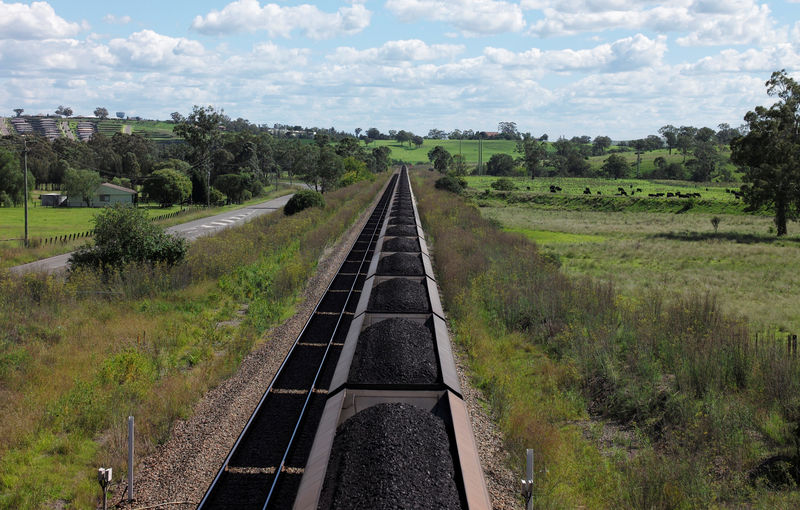By Colin Packham
SYDNEY (Reuters) - Australia sought to calm investors on Friday about the state of bilateral ties with China following a ban on coal imports at the northern port of Dalian, as coal stocks fell and the local dollar remained under pressure.
The Australian currency dropped more than 1 percent to a 10-day low of $0.7070 on Thursday after Reuters reported that customs at the Chinese port had banned imports of Australia's biggest export earner since the start of February.
China is the largest buyer of Australian coal, taking 89 million tonnes last year, worth A$15 billion ($10.7 billion), according to data from the Australian Bureau of Statistics (ABS).
Ties between the two countries were strained in 2017 when Canberra accused Beijing of meddling in its domestic affairs, and the relationship suffered another setback last year when Australia banned China's Huawei from its 5G broadband network.
Australia has asked its ambassador to China, Jan Adams, to seek urgent clarification, the government said, while lawmakers and the central bank said the port move may not be related to bilateral ties.
"I wouldn't jump yet to the conclusion that this is something directed to Australia," Reserve Bank of Australia Governor Philip Lowe told a parliamentary economics committee.
"It may well turn out to be that it's being driven by concerns about the environment in China and the profitability of the coking coal industry in China," he said in response to lawmakers' questions.
Shares in Australian coal miners, however, fell at the open on Friday amid broad weakness in the resources sector.
Stanmore Coal fell more than 7 percent at one point as it said was monitoring the situation to determine whether there would be any impact on its coal sales.
New Hope Corp fell more than 4 percent, while shares in Whitehaven were down more than 4 percent and Yancoal more than 3 percent even though both miners said they were not impacted directly.
Major coal producer Glencore (LON:GLEN) ended down 3.2 percent in London overnight, but BHP Group, Australia's biggest metcoal producer, was down just 0.1 percent.
"When decisions like this have been made in the past at local port level, it was related to domestic supply related issues, environmental issues at a local level," Mathias Cormann, Minister for Finance told Sky News.
"It was unrelated with anything to do with the bilateral relationship between Australia and China."

A Chinese foreign ministry spokesman said on Thursday that customs were inspecting and testing coal imports for safety and quality, and the move was "completely normal".